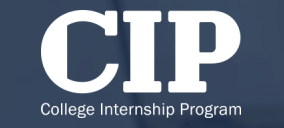Finding community support for young adults on the autism spectrum or with learning differences can make a profound difference in their path toward independence. Local organizations, nonprofits, and advocacy groups often offer programs that focus on life skills, social connections, employment readiness, and postsecondary education support. Families can start by reaching out to regional centers, college disability services offices, and local chapters of national organizations such as Autism Society or Autism Speaks. Peer mentoring programs, parent networks, and community workshops can also provide valuable guidance and connection. Building a strong community of support helps young adults gain confidence, develop self-advocacy skills, and access opportunities that empower them to thrive in adulthood.
College Planning for NeurodiverseStudents & Transition Support
Delivers full-service college and graduate admissions support with a dedicated pathway for students with learning differences, including autism, ADHD, and dyslexia. Experienced in working with neurodiverse learners across the globe and equipped to support families in multiple states—admissions consulting that genuinely understands neurodiversity.
This organization—rather than a private consulting service—supports college students with autism by offering resources, advocacy, and access to helpful networks. Although not a traditional counseling provider, it offers transition-to-college support that can be especially valuable for neurodiverse students and their families.
A private educational consultancy led by April Miller—a speech-language pathologist and educational consultant—providing specialized support for neurodivergent students (including ADHD, ASD, dyslexia, dysgraphia, and more) throughout the college-planning process. The practice focuses on helping neurodiverse learners navigate the transition to college, develop application strategies, build self-advocacy skills, and strengthen executive functioning. Offers individualized, one-on-one guidance with virtual support available nationwide.
Provides directories and curated lists of universities and programs that support neurodiverse learners, including those offering transition and college-readiness services.
Why it’s helpful: Ideal for families researching colleges with strong neurodiversity supports, making it a useful complement to counseling.
A service offering academic support, executive functioning coaching, self-advocacy training, and transition programs for young adults with autism, ADHD, and learning differences.
Why it’s relevant: Although not strictly an admissions counseling service, it helps students navigate the full transition to college—both academically and in independent living—which may be highly valuable for your audience.








